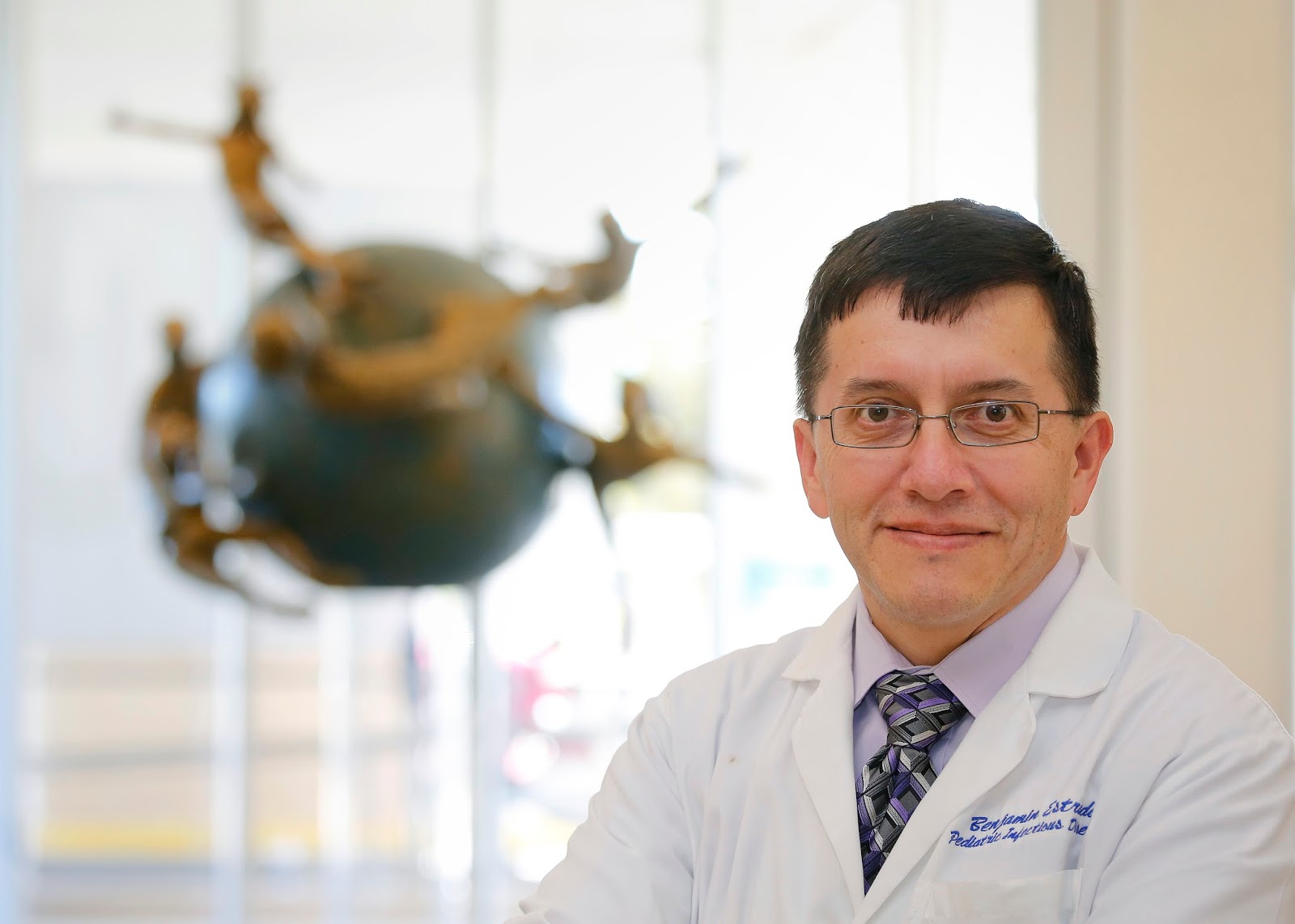Dr. Benjamin Estrada, assistant dean for medical education at the University of South Alabama College of Medicine, recently was honored by his alma mater and medical school graduating class.
In January 2015, Dr. Estrada, who also serves as a pediatric infectious disease specialist and professor of pediatrics at USA, gave the inaugural speech at the commencement ceremony for the medical school’s freshman class. After his speech, the university named Dr. Estrada visiting professor and honorary faculty member of the Universidad Francisco Marroquin School of Medicine in Guatemala .
“It was a very rewarding experience,” Dr. Estrada said. “It is rewarding to be in the same halls where I once was a fearful new student fresh out of high school. Now coming back, I have the opportunity to share my experiences with students who are now in the same position I was 32 years ago. It is truly an honor to be able to impact future medical professionals. This was a chance for me to give back.”
In addition, Dr. Estrada’s graduating class asked him to present at a symposium for the university’s college of medicine on July 18, 2015. During that event his presentation was about the future of Medicine in the context of medical education. The symposium was celebrating the 25th year anniversary of the graduating class of 1990.
“At the symposium, we were able to share our experiences with the current medical students,” Dr. Estrada said. “We discussed how we have adapted as a profession, shared ideas on how to best care for patients and talked about the future of medical education.”
Dr. Estrada has also been working with his alma mater as a consultant for the university’s school of medicine curriculum renewal process over the past two years. The university is changing their curriculum to match the current global tendencies in medical education following the lead here at USA, which is now focused on longitudinal content integration in a competency –based environment which emphasizes self-directed learning.
Universidad Francisco Marroquín Medical School in Guatemala is the first school in Central America to change their curriculum to the integrated systems in a competency-based format.
“The program we have created and developed here at USA is influencing medical education overseas,” Dr. Estrada said. “When other medical schools – even those outside of the country – are learning from our program here at USA, it speaks to the quality of our program and its faculty. What we are doing here is potentially contributing to improve medical education and patient care elsewhere.”
Watch Dr. Estrada’s inaugural speech titled “A Journey with a Purpose" here.

